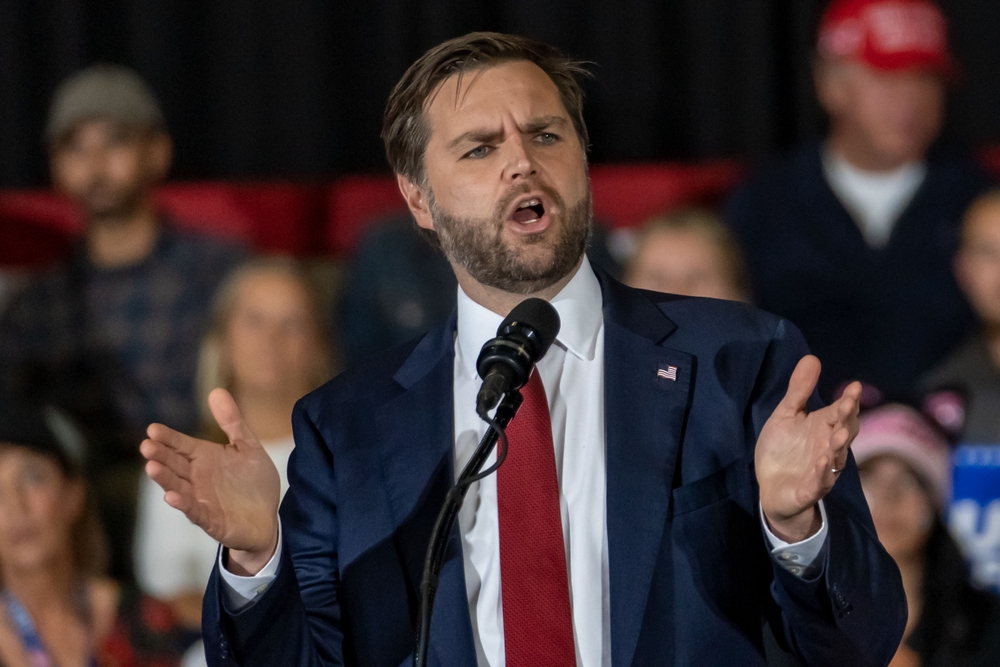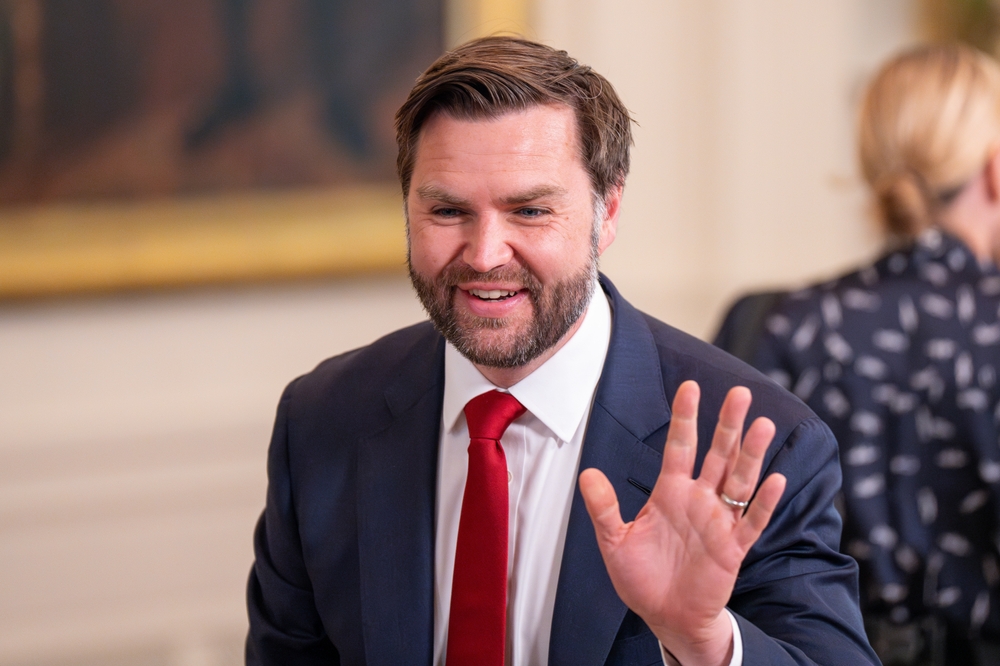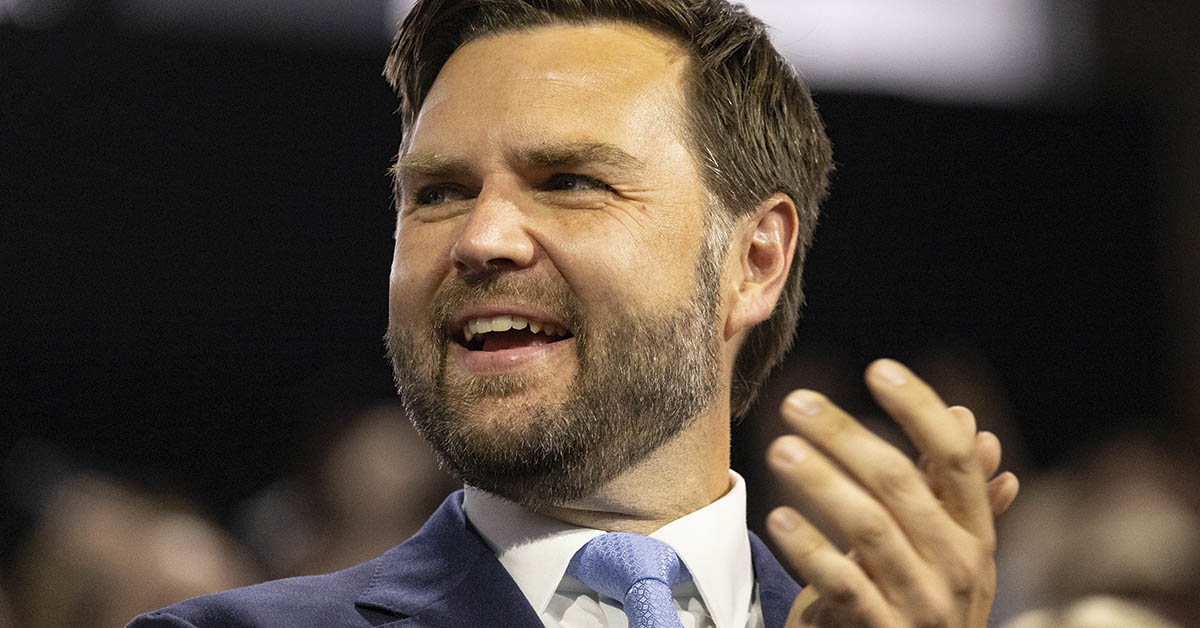The United States is preparing to co-host the 2026 FIFA World Cup alongside Mexico and Canada. With matches planned across major American cities, the tournament will attract millions of fans from nearly 100 countries. However, recent comments from U.S. Senator and Vice President JD Vance have stirred controversy and raised concerns about the tone of the nation’s welcome.
While expressing excitement about the event, JD Vance warned that international visitors must leave the country once their visas expire. He invoked Homeland Security Secretary Kristi Noem, suggesting that those who overstay would face serious consequences. His comment quickly drew criticism for appearing harsh and unwelcoming, casting a political shadow over what should be a unifying global celebration.
A World Cup Welcome with a Political Edge
During a public appearance, JD Vance spoke about the upcoming World Cup. He said, “When the time is up, they’ll have to go home. Otherwise, they’ll have to talk to Secretary Noem.” The blunt warning emphasized immigration enforcement more than hospitality.
Transportation Secretary Sean Duffy backed the message. He encouraged fans to enjoy the tournament but cautioned them against overstaying their welcome. “Don’t overstay your welcome,” he said.
Although the officials referenced existing visa laws, critics argued that their delivery focused more on punishment than diplomacy. Instead of promoting a friendly atmosphere, the comments highlighted political priorities, dampening the spirit of international unity.
Read More: Trump Wants to Rename Veterans Day—Here’s What He’s Calling It
JD Vance and the Administration’s Hardline Immigration Approach
JD Vance’s statement reflects the Trump administration’s continued hardline stance on immigration. During his first term, Trump pushed policies like travel bans, family separations, and strict asylum limits. That same aggressive posture continues under his second administration, now with Vance serving as Vice President.

This administration doesn’t just remind people of the rules, it warns of consequences. Fans from Latin America, Africa, and the Middle East, who already face complex visa processes, worry that they’ll face hostility during the tournament. Many see Vance’s statement as a signal that visitors will be treated with suspicion rather than hospitality.
Critics argue that JD Vance framed international guests as potential violators before they even arrive. Instead of emphasizing cultural exchange and unity, his words turned attention toward border control and enforcement.
Global Reaction Signals Concern
International reaction to JD Vance’s remarks came quickly. Fans, journalists, and analysts voiced concern on social media and in the press. Many questioned whether the U.S. would offer a welcoming environment during the tournament.
Outlets in Europe, South America, and Asia highlighted the contradiction between hosting a global event and warning guests about deportation. Human rights groups called the comments “uninviting” and said they could discourage fans from attending.
Even some Americans criticized the administration’s message. They warned that focusing on immigration enforcement might overshadow the positive energy the World Cup usually brings.
FIFA Tries to Reassure the Public
FIFA President Gianni Infantino responded to the growing concerns. He clarified that all countries require visitors to leave once their visas expire and insisted that the U.S. would treat fans fairly. He also praised the government’s enthusiasm for the tournament.

However, Infantino’s reassurance didn’t completely settle public fears. Many fans still worry about the tone set by leaders like JD Vance. While they understand the need to follow immigration laws, they want to feel welcomed, not warned.
Fans travel not just for the games but for the experience. How they’re treated at airports, hotels, and stadiums shapes their memories. Right now, some fear that harsh rhetoric might taint that experience.
Political Language Carries Global Impact
JD Vance’s comments show how much words matter on the global stage. A reminder about visa rules became a focal point for political debate. The message felt less like a guideline and more like a threat.
Hosting the World Cup gives a country the chance to present itself as open, proud, and globally engaged. Leaders set the tone. When those leaders focus on enforcement over hospitality, they risk damaging the country’s image.
The administration must now ask itself: Can it uphold immigration laws while still embracing global visitors? With the world watching, the U.S. needs to balance security with warmth and respect.

Final Thoughts: Resetting the Tone Before the Whistle Blows
The 2026 FIFA World Cup could be one of the most memorable sporting events of the decade. It offers the United States a chance to unite cultures and celebrate a shared love of the game. But to make that happen, its leaders must carefully choose their words.
JD Vance’s comments raised important concerns about tone, perception, and policy. There’s still time to shift the message and focus on hospitality instead of suspicion. How the U.S. treats its guests will shape the legacy of the 2026 tournament.
Read More: New Pope Leo XIV Has Long Opposed JD Vance and Trump on Immigration

